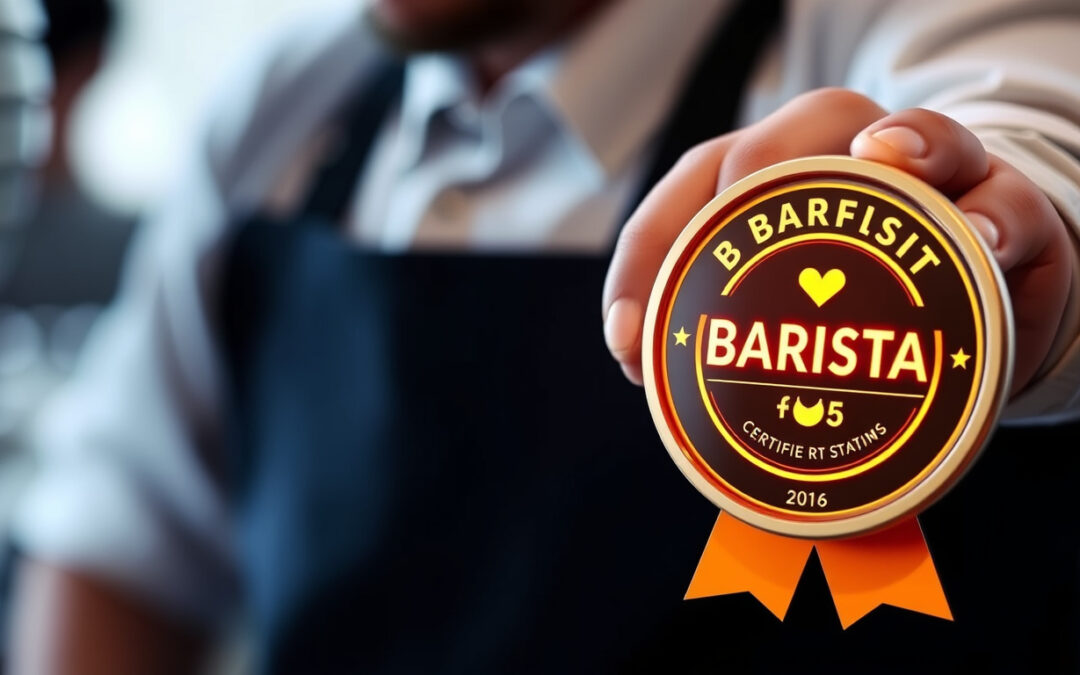Entering the vibrant world of bartending can be an exciting career choice, blending creativity with social interaction. Whether you’re just starting or looking to elevate your existing skills, obtaining a bartender certification is a crucial step toward professional growth. Not only does this certification validate your expertise, but it also boosts your confidence and enhances your reputation among patrons and employers alike. In this article, we’ll explore essential bartender certification tips to help you improve your beverage service skills and stand out in the bustling hospitality industry.
Understanding the Importance of a Bartender Certification
A bartender certification signifies that you have completed relevant training programs covering key areas such as responsible alcohol service, mixology, and customer service strategies. Certification offers several benefits:
- Legal compliance: Many states and venues require certification to serve alcohol legally.
- Enhanced skills: Formal training helps refine your mixing, pouring, and presentation techniques.
- Increased credibility: Certifications boost customer trust and employer confidence.
- Career advancement: Certified bartenders are often considered for higher-paying roles or supervisory positions.
For aspiring bartenders or those aiming to refresh their skills, obtaining a certification can open new doors and pave the way for a more rewarding career.
Essential Tips for Boosting Your Beverage Service Skills
Achieving excellence in the bartending profession involves continuous learning and skill enhancement. Below are targeted tips focusing on how a bartender certification can help you upgrade your beverage service skills.
1. Choose the Right Certification Program
Picking a reputable certification program is the first step toward professional growth. Look for courses accredited by recognized organizations such as:
- TIPS: Training for Intervention Procedures, emphasizing responsible alcohol service.
- ServSafe Alcohol: Focuses on alcohol safety, prevention of intoxication, and legal compliance.
- BarSmarts: A comprehensive program covering mixology, spirits, and bar management.
When selecting a program, consider factors like course content, flexibility, cost, and industry recognition. A well-chosen certification will provide you with foundational knowledge and practical skills essential for excellent beverage service.
2. Focus on Responsible Alcohol Service
Responsible alcohol service is at the core of effective bartending. Your certification often covers recognizing signs of intoxication, checking IDs, and preventing overconsumption. This knowledge helps prevent legal issues and ensures a safe environment for patrons.
Tip: Practice evaluating patrons’ behavior diplomatically and consistently. This builds trust and professionalism.
3. Master Mixology and Drink Presentation
A strong beverage menu and impressive presentation can turn casual customers into loyal patrons. Focus on mastering classic cocktails, modern innovations, and visually appealing garnishing techniques. Your bartender certification course benchmarks these skills, teaching you:
- Using quality ingredients
- Perfecting pouring techniques
- Balancing flavors
- Garnishing for visual appeal
Pro tip: Stay updated on trending cocktails and incorporate new ideas into your repertoire to captivate guests.
4. Practice Efficient and Accurate Pouring Skills
Timeliness and accuracy in pouring drinks improve customer satisfaction and streamline service. Certification programs often include training on correct pouring techniques, such as free pouring and measure pouring, to ensure consistency in every drink.
Bonus tip: Invest in a good jigger or pour spouts to increase precision.
5. Enhance Customer Service and Communication Skills
Exceptional customer service enriches the bar experience and encourages repeat business. Use your certification training to sharpen your communication skills, learn effective ways to recommend drinks, and manage difficult situations gracefully.
Remember: Building rapport with guests often results in higher tips and positive reviews.
6. Develop Speed and Multitasking Abilities
Efficiency is vital behind the bar. Practice multitasking without sacrificing quality—preparing garnishes, managing multiple orders, and maintaining cleanliness all at once. Many certification programs include simulations to develop these skills.
7. Stay Updated with Industry Trends
The beverage industry constantly evolves with new spirits, tools, and cocktails emerging regularly. A reputable bartender certification program keeps you informed about current trends, encouraging adaptability and innovation.
Additional Tips for Getting the Most Out of Your Certification
- Attend workshops and seminars beyond your initial certification to broaden your knowledge.
- Network with other industry professionals for insider tips and mentorship.
- Seek feedback from peers and supervisors to identify areas for improvement.
- Practice consistently to develop muscle memory and confidence in your skills.
- Stay compliant with local laws and regulations to uphold your professional integrity.
Top 5 Beverage Service Skills to Focus on Post-Certification
- Mixology mastery
- Safe alcohol service
- Customer engagement
- Speed and efficiency
- Cleanliness and organization
By focusing on these areas, you’ll significantly boost your beverage service capabilities, making you a highly valued member of any hospitality team.
Frequently Asked Questions About Bartender Certification
1. How long does it take to get a bartender certification?
The duration varies depending on the program, but most certifications can be completed in a few days to a few weeks. Online courses offer flexibility, while in-person classes may provide hands-on experience.
2. Is bartender certification legally required?
In many U.S. states and countries, a bartender certification is mandatory for alcohol service. Always check local regulations to ensure compliance with licensing requirements.
3. Can bartender certification improve my tips and earnings?
Absolutely. Certified bartenders tend to provide better service, which can lead to higher customer satisfaction and increased tips. Moreover, certification can make you eligible for higher-paying management roles.
Conclusion
Earning a bartender certification is a strategic move to elevate your beverage service skills and establish a successful career in the hospitality industry. By choosing reputable programs, honing responsible alcohol service, and continuously honing your mixology and customer service abilities, you position yourself as a skilled and trustworthy professional. Remember, excellence behind the bar is a blend of technical expertise, creativity, and interpersonal skills—your certification is just the beginning of your journey toward bartending mastery.
For more detailed information on recognized bartender certification programs, visit the Alcohol and Tobacco Tax and Trade Bureau (TTB) or consult your local licensing authority.
Sources:
Enhance your skills, earn your certification, and become the bartender everyone wants to visit!


